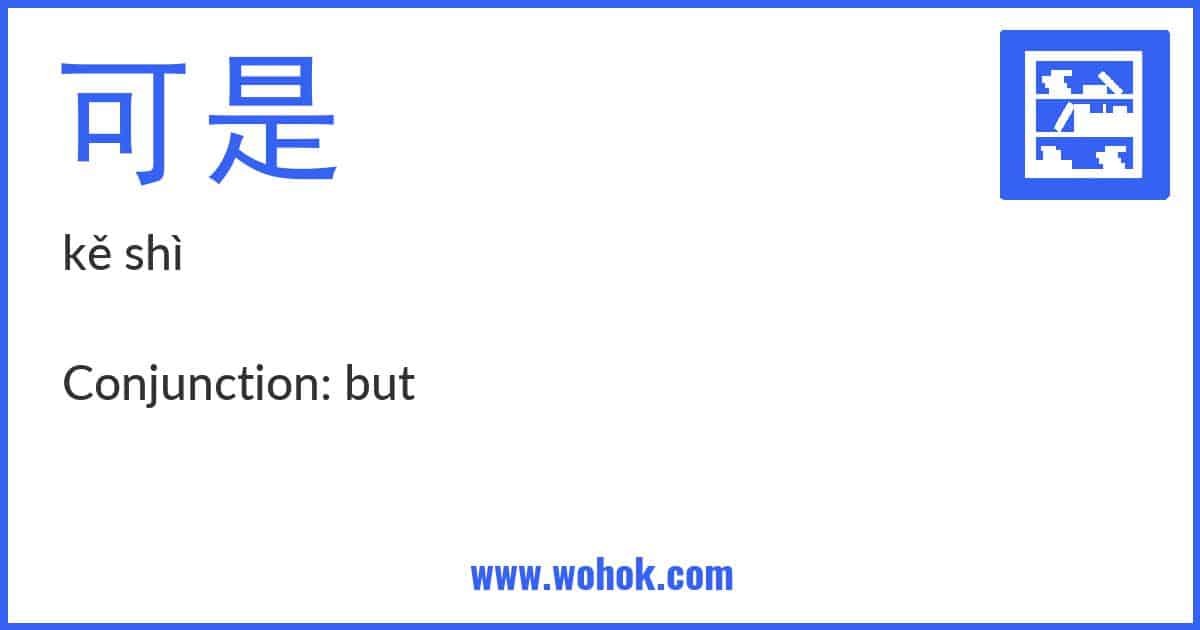The Chinese word “可是” is a conjunction that is commonly used to express contrast or contradiction. It can be translated to “but”, “however”, or “yet” in English. It is often used to connect two clauses or sentences that express opposing ideas or situations. For example, “我很想去旅行,可是我没有时间” means “I really want to travel, but I don’t have time”.
Translation
Conjunction: but
Pronunciation
Example Sentences
| Chinese | Pinyin | Engish |
|---|---|---|
| 我想去旅游,可是我没有时间 | wǒ xiǎng qù lǚyóu, kěshì wǒ méiyǒu shíjiān | I want to travel, but I don’t have time |
| 他很聪明,可是他不努力 | tā hěn cōngmíng, kěshì tā bù nǔlì | He is very smart, but he doesn’t work hard |
| 这道题很难,可是我还是做出来了 | zhè dào tí hěn nán, kěshì wǒ háishì zuò chūlái le | This question is difficult, but I still solved it |
| 我们想去看电影,可是票已经卖完了 | wǒmen xiǎng qù kàn diànyǐng, kěshì piào yǐjīng mài wán le | We want to go watch a movie, but the tickets are already sold out |
| 她很漂亮,可是她的性格不好 | tā hěn piàoliang, kěshì tā de xìnggé bù hǎo | She is very pretty, but her personality is not good |
| 这个餐厅的菜很好吃,可是价格有点贵 | zhège cāntīng de cài hěn hǎochī, kěshì jiàgé yǒudiǎn guì | The food at this restaurant is delicious, but the prices are a bit expensive |
HSK
可是 is part of HSK Level 4 in HSK 2.0. In the newer HSK 3.0 it is part of HSK Level 2.
Learning Card


